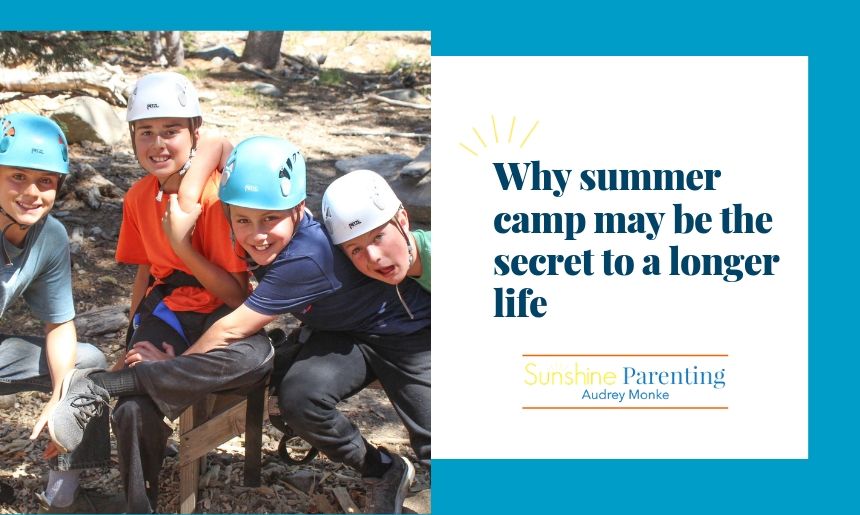
Last week, during my training with camp staff about friendship skills, I showed them this video (Susan Pinker’s TED Talk: The Secret to Living Longer May Be Your Social Life):
I then asked our staff to share what similarities they found between summer camp and the small village in Sardinia Pinker describes in her TED Talk.
They came up with these ideas:
- We live together in close quarters, sharing space.
- We eat every meal together, gathered together in “family” groups.
- We close each day gathered together around a campfire, sharing our highs, lows, dreams, and fears.
- We are isolated from the rest of the world, focused completely on our own community.
- We support and look out for each other.
- We take care of each other, each of us serving in different roles, using our own talents and skills.
- We express appreciation for each other.
- We greet everyone in our community with a smile.
- Together, we unplug from our devices and live differently from the rest of the world, focusing on our face-to-face interactions (the kind Pinker describes as firing up the best parts of our brains).
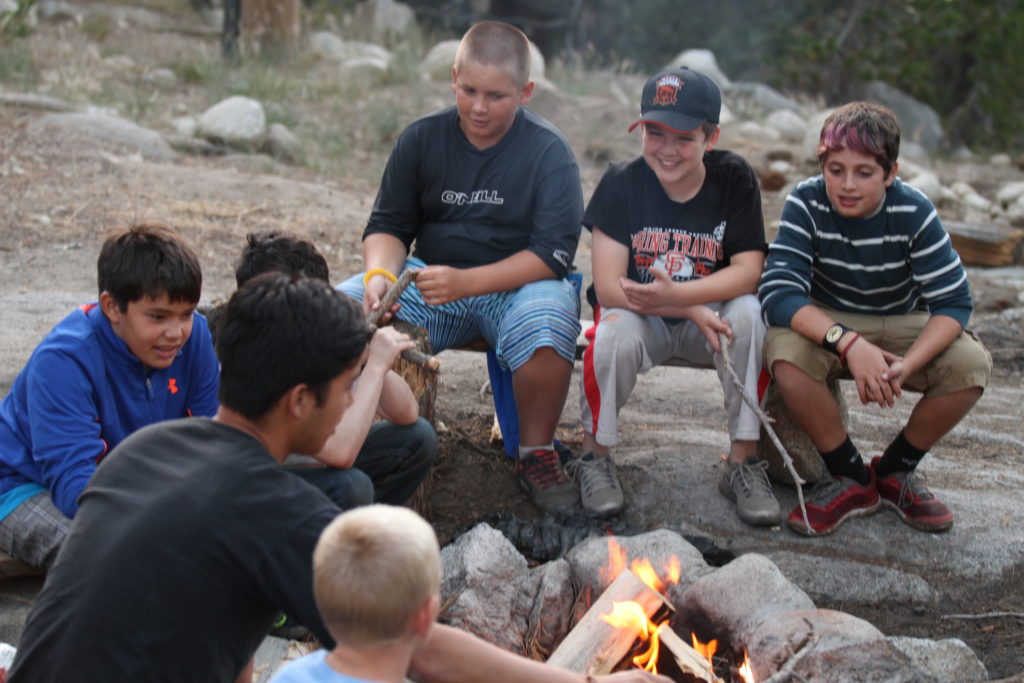 I have done research on the positive impact of summer camp experiences on campers’ happiness and social skills, but I have not isolated the specific variables that lead to these positive outcomes for campers. I suspect, based on my research in positive psychology, that it is a combination of factors.
I have done research on the positive impact of summer camp experiences on campers’ happiness and social skills, but I have not isolated the specific variables that lead to these positive outcomes for campers. I suspect, based on my research in positive psychology, that it is a combination of factors.
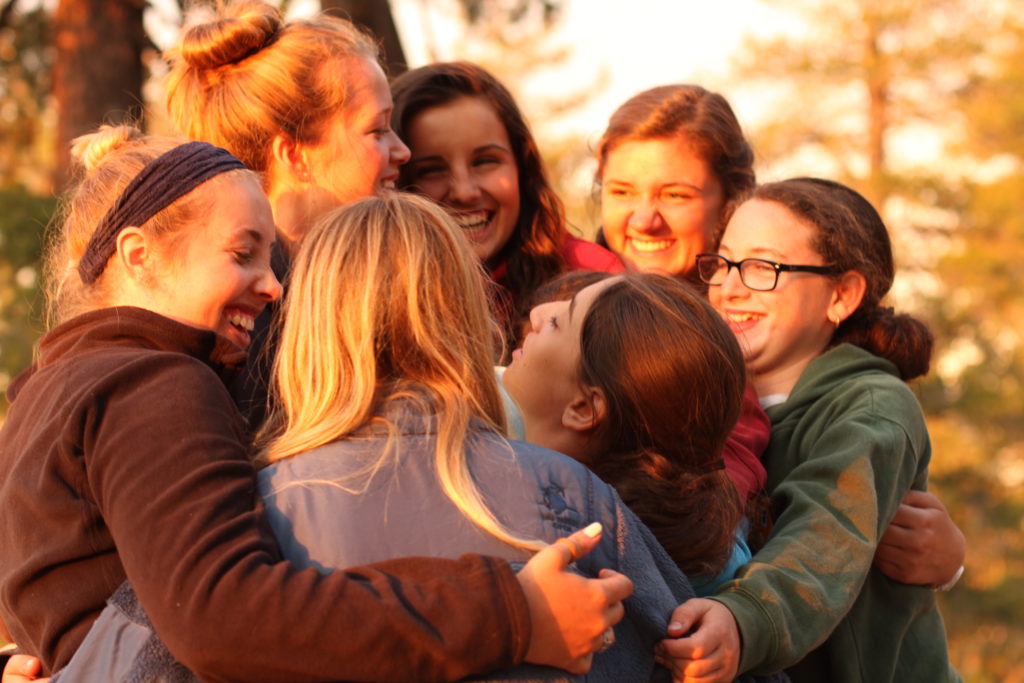 There are many camp practices that are known to decrease depression and increase well-being:
There are many camp practices that are known to decrease depression and increase well-being:
- Face-to-face connection time.
- Feeling a sense of acceptance and belonging.
- Being outside, in nature.
- Being more mindful, present, in-the-moment.
- Lots of play: singing, dancing, games.
- Adequate sleep.
- Trying and experiencing new things.
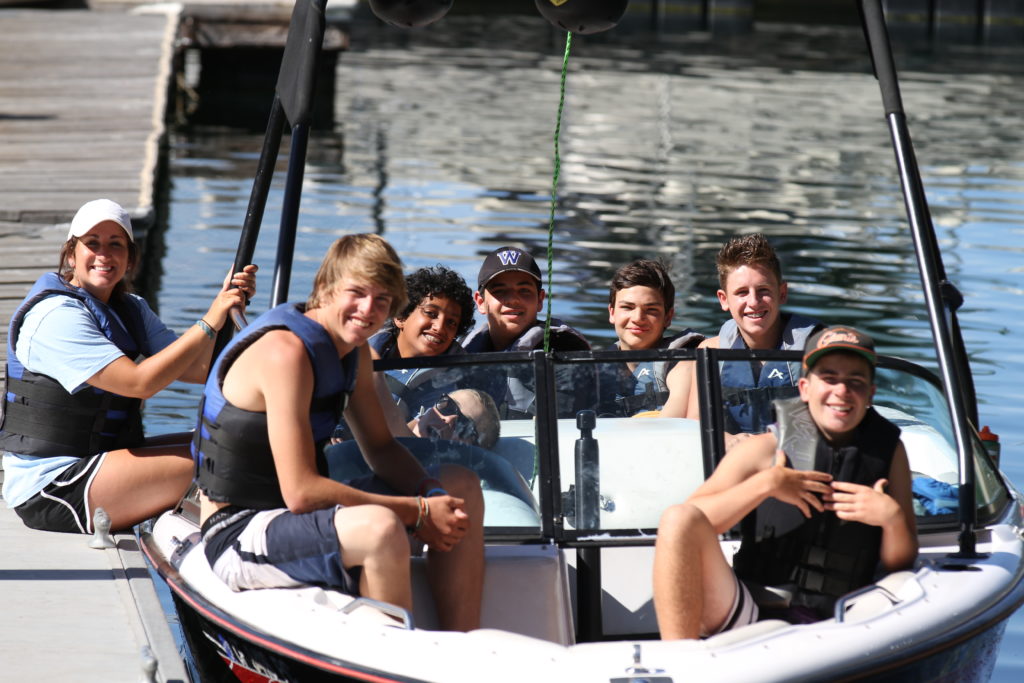 We need to look no further than the recent tragic deaths of two celebrities, both thought to be “successful” by many worldly measures, to know the importance of focusing on other, much more important things as we carve out healthy, meaningful lives for ourselves and for our children.
We need to look no further than the recent tragic deaths of two celebrities, both thought to be “successful” by many worldly measures, to know the importance of focusing on other, much more important things as we carve out healthy, meaningful lives for ourselves and for our children.
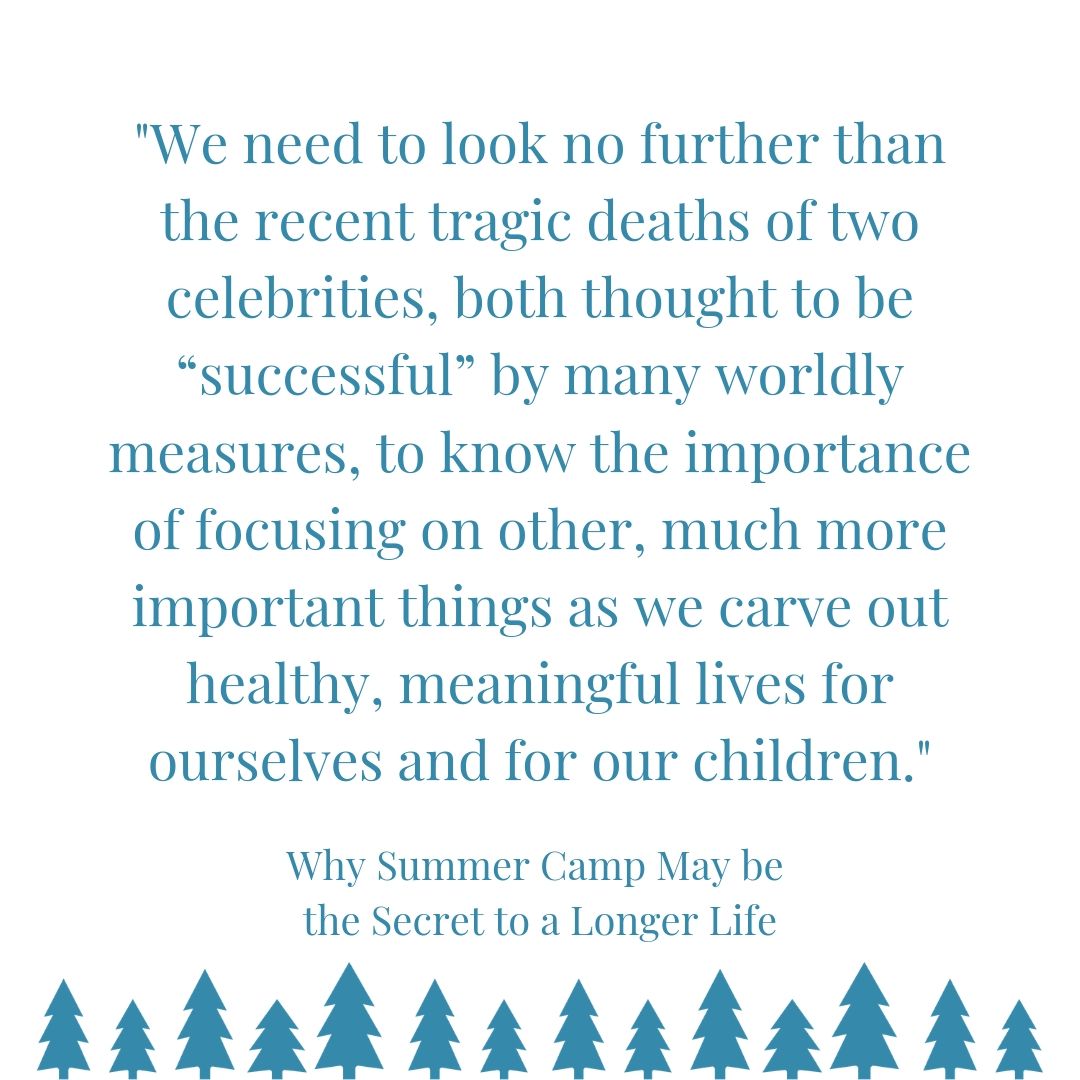
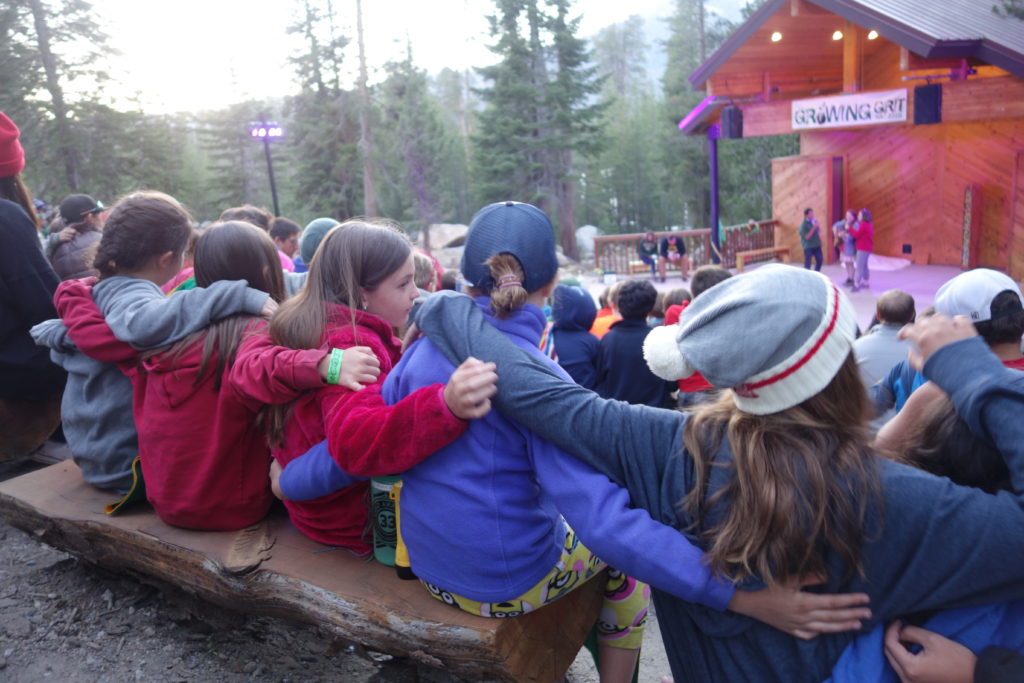 Successful lives are created first from social connection and positive relationships. They are lives that end – ideally – at old age, surrounded by the few people with whom we have gone through life’s ups and downs. They are lives that – when we are faced with the inevitable depression, anxiety, and mental health issues that plague us all during different seasons and for different circumstances (both biological and circumstantial) – we have at least a few people who will know us well, support us, and help us get the intervention we need to heal – even if they have to knock down our door to do it.
Successful lives are created first from social connection and positive relationships. They are lives that end – ideally – at old age, surrounded by the few people with whom we have gone through life’s ups and downs. They are lives that – when we are faced with the inevitable depression, anxiety, and mental health issues that plague us all during different seasons and for different circumstances (both biological and circumstantial) – we have at least a few people who will know us well, support us, and help us get the intervention we need to heal – even if they have to knock down our door to do it.
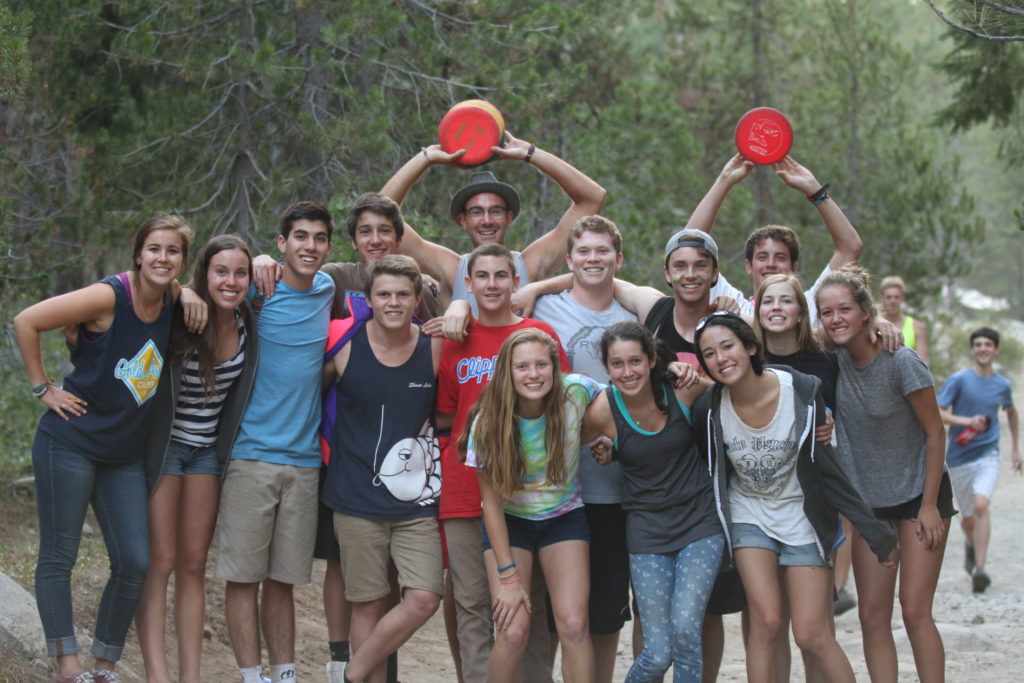 If we strive for better connections, positive relationships, and the forming of close, village-like communities in our families, neighborhoods, religious institutions, clubs, and our work, we and our children are much more likely to achieve the “success” that we all need as humans – the success that is defined by a happy, healthy life.
If we strive for better connections, positive relationships, and the forming of close, village-like communities in our families, neighborhoods, religious institutions, clubs, and our work, we and our children are much more likely to achieve the “success” that we all need as humans – the success that is defined by a happy, healthy life.
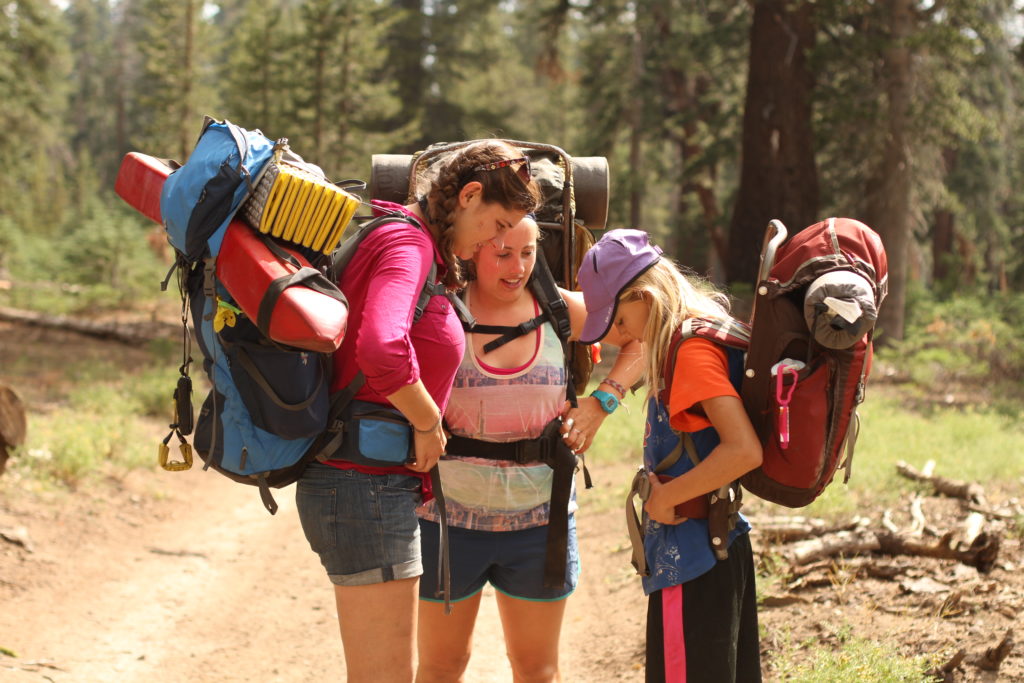 That success only happens when we have close connections with others who will be there for us during our darkest days as well as our most celebratory moments. And those connections can only happen in community, with practice, and with the types of exercises and activities that can train our brains to view the world differently–not as a massive, complicated world impossible to navigate but instead as a small village, or a summer camp, where there are always people to lean on.
That success only happens when we have close connections with others who will be there for us during our darkest days as well as our most celebratory moments. And those connections can only happen in community, with practice, and with the types of exercises and activities that can train our brains to view the world differently–not as a massive, complicated world impossible to navigate but instead as a small village, or a summer camp, where there are always people to lean on.
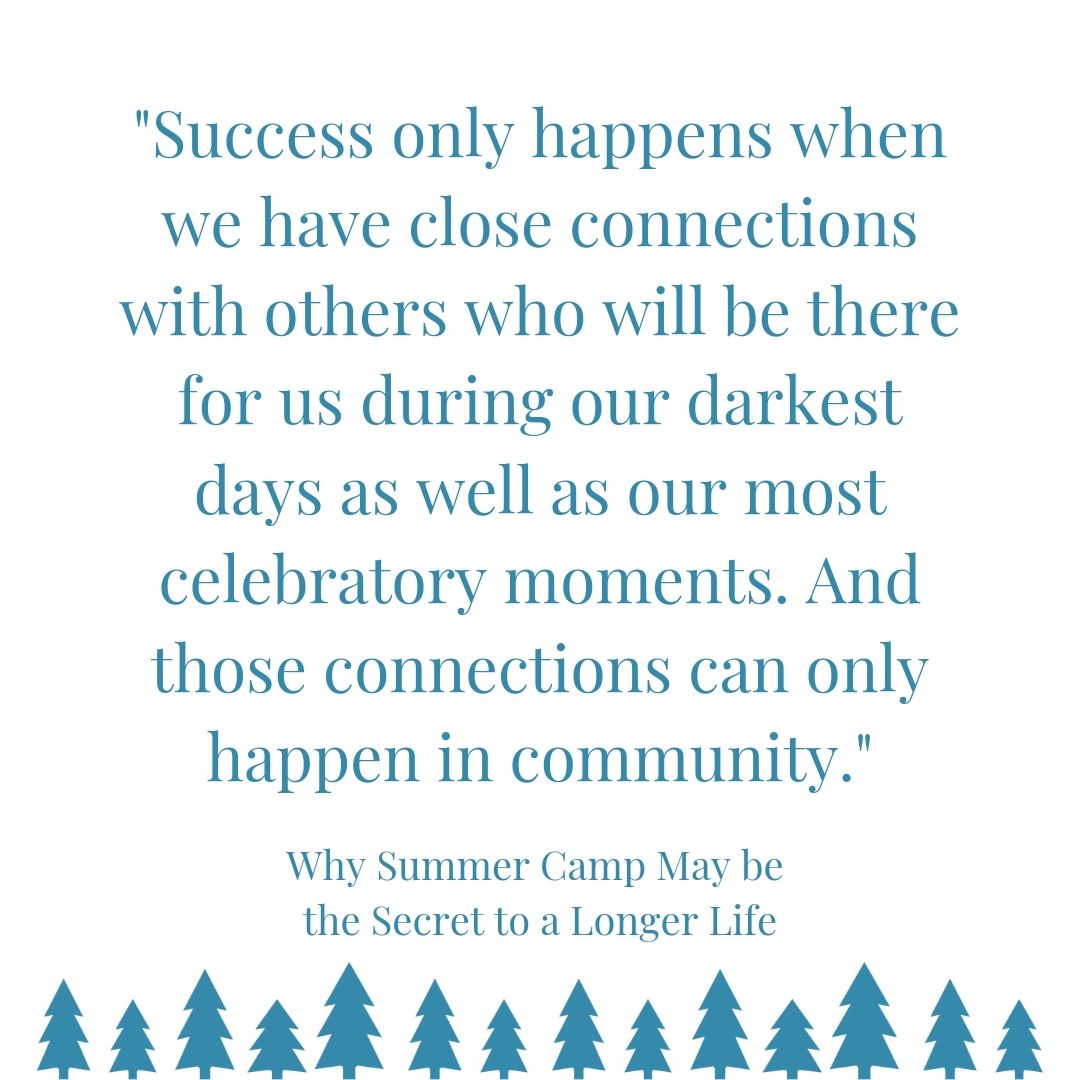
Related Posts
11 Ways to Help Kids Create Real Connections
Why Teens Need Summer Camp More Than Ever
How to Have a Closer Family in 5 Minutes a Day
Why Making Friends is one of the Most Important Things that Happens at Summer Camp
Related Sunshine Parenting Podcast Episodes
Ep. 40: Frientimacy with Shasta Nelson
Ep. 35: Unplugging with Your Family
Ep. 32: Benefits of Summer Camp for Teens
Ep. 30: How to Raise a Durable Human
Ep. 27: Raising Teens Who Thrive
More information about Audrey’s new book is here: Happy Campers: 9 Summer Camp Secrets for Raising Kids Who Become Thriving Adults.
In Happy Campers, Audrey shares what she’s learned from three decades of creating a culture where kids become happier while gaining important social and emotional skills. The book is based on her thousands of interactions with campers, camp counselors, and parents, her academic research in positive psychology, and interviews with camp directors from across the country.
